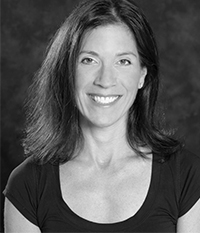Sheri Warsh received a call that no parent wants to get. Her son, then a freshman some 260 miles away at the University of Michigan, was crouched in a corner with stabbing pains in his chest and unable even to walk across the street to the hospital, according to his roommate, who made the phone call. Warsh instructed the roommate to call an ambulance and she immediately got on the phone with staff at the hospital to ensure her son would be tended to upon arrival.
What Warsh learned was that the doctors and nurses would not discuss her son’s situation with her because he was 18, the age at which a child becomes an adult in the eyes of the law. Upon age 18, your son or daughter can vote, get married, make a will, sign a contract, open a bank account, and get medical treatment — all without your approval. More importantly, this means that you no longer have the right to speak with your child’s doctors, make medical decisions, or access medical records without consent.
“This is an ideal time for parents to discuss with their child how to be a responsible adult, and that includes managing their healthcare and planning for emergencies,” says Laura Ellis, a independent estate-planning attorney on Chicago’s North Shore.
Most states have their own medical power of attorney form; however, many states don’t include the HIPAA (Health Insurance Portability and Accountability Act of 1996) language in the document. Having a medical power of attorney with HIPAA language embedded in it would grant the child’s parent or assigned agent the right to medical information and records.
John O’Grady, an estate planning attorney at the O’Grady Law Group in San Francisco, points out that 18- to 24-year-olds are in a category of adults who are often associated with risk-taking, and therefore need to be especially conscientious about having an appointed agent designated with the medical power of attorney. In fact, in 2015, accidents accounted for some 42 percent of deaths among those ages 20 to 24, according to the Centers for Disease Control and Prevention National Vital Statistics report.
“It’s not the 80-year-olds who are getting on motorcycles and making risky decisions,” says O’Grady, who often writes about estate planning for The Bar Association of San Francisco. “People deny death and vulnerability, but it’s part of the deal of becoming an adult to acknowledge it and plan for it.”
In most cases, an attorney can complete the process in under an hour, says Warsh. In the case of her son, it was like the cobbler’s children going barefoot, since she is an estate-planning lawyer with the Chicago law firm Levenfeld Pearlstein, LLC, and she often oversees these matters for her clients.
Warsh points out that the child is the client, not the parents. An attorney should work with the client to ensure the language reads as he/she wishes. The document could stipulate the parent/agent takes control effective immediately or only when the child becomes unable to make decisions.
After what she and her family went through, Warsh has become an impassioned advocate to make sure all children and their parents understand the value of having a medical power of attorney in place. She recommends parents keep the document scanned on their phones so if the call comes, they can immediately send the power of attorney document to their child’s physician.
“This was so scary and it’s so simple to avoid,” Warsh says.
Kaiser Permanente, a healthcare provider organization, offers a step-by-step guide to completing an advance healthcare directive form on their website.
The Highland Park – Highwood Legal Aid Clinic will be holding an event to help graduating seniors and their parents complete power of attorney forms. The clinic will be held at 492 Laurel Ave. in Highland Park on July 25 from 5:30 p.m. until 8 p.m. Those interested in making an appointment should call the clinic at 847-737-4042 and ask for Alicia or Jan.
 Susan Pasternak has worked as a journalist for more than two decades, reporting and writing on myriad subjects ranging from national health care policy to personal finance to head lice. Her work has been published in numerous consumer and business publications. Susan lives with her husband, three children, and dog Roxy in Highland Park. She also volunteers with Working Together, a Highwood/Highland Park organization that provides enrichment opportunities to under-resourced children in the community.
Susan Pasternak has worked as a journalist for more than two decades, reporting and writing on myriad subjects ranging from national health care policy to personal finance to head lice. Her work has been published in numerous consumer and business publications. Susan lives with her husband, three children, and dog Roxy in Highland Park. She also volunteers with Working Together, a Highwood/Highland Park organization that provides enrichment opportunities to under-resourced children in the community.

